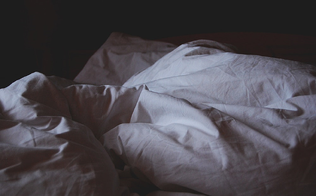13% of men and 36% of women over the age of 65 have trouble falling asleep and staying asleep, according to a study reported by Sleep Education.
Seniors need as much sleep as children and adolescents, usually 7-9 hours on average. As people age, sleep patterns naturally tend to change. They shouldn’t, however, consist of problems that leave elderly persons tired and moody throughout the day.
In states such as Alaska where there are times of the year when the sun doesn’t set, adjusting to a good sleeping pattern can prove problematic. So, what are the factors that affect sleeping patterns and how can seniors combat them?
Factors That Affect Sleeping Patterns In The Elderly
Changes in the physiological needs of senior adults demand for longer hours of sleep. The elderly should go to bed earlier in the evening so they can have enough time to get to sleep and stay asleep before daylight is back and noise wakes them.
For people living in Alaska, where there are times of the year when the sun never sets and when it never rises, hiring skilled nurses especially for those living with Alzheimer’s disease and other dementia, is important in keeping track of their sleep-time. This might sound expensive but it is not.
Furthermore, healthcare costs for seniors have been made manageable thanks to government programs like Medicaid.
Apart from tracking sleep durations, seniors also need to be exposed to daylight for at least two to three hours. This works to regulate their melatonin levels. Melatonin is the hormone that helps one get into a deep sleep allowing the body to really relax.
It is important to note that artificial lights can affect melatonin levels negatively in the night as reported by the National Centre for Biotechnology Information. Seniors should, therefore, use low wattage bulbs in the night and light emitting appliances should be switched off an hour before bedtime.
Women experiencing menopausal symptoms also have a hard time sleeping well due to hot flashes that wake them in the middle of the night. These can be managed by sticking to healthy diets and regular physical activity which induce deep sleep.
Climate changes also affect sleeping patterns. Hot, humid air prevents one from settling into good sleep while cool air promotes it.
Understanding Sleep Disorders
Sleep disorders are brought about by a variety of factors. Biological changes majorly contribute to a number of these disorders. Other causes include medication as well as health issues individuals may have experienced over the years. With proper assistance, they can be addressed to improve sleep quality.
Insomnia is caused by environmental, psychological, behavioral and health-related factors or medication side effects. Essentially it is a condition where one experiences difficulty in initiating and staying asleep with tendencies to wake up severally within the night for various reasons.
It could be because of pain, medication effects, washroom visits, hunger, and light noises among other reasons. It results in fatigue, moodiness, and drowsiness during the day.
Thankfully, it can be treated using exercising, eating regularly, and avoiding caffeine, fluids and other substances that may cause any of the symptoms.
Other Common Sleep Issues
Sleep-disordered breathing such as snoring and sleep apnea are more common among seniors who are overweight. They are caused by the partial or total blockage of the passage of air through the airways to the lungs.
They could result in cognitive problems, stroke, heart disease or increase in blood pressure. The noise produced also distracts partners’ sleeping patterns. Losing weight and gearing up with noise blocks is necessary to restore balanced sleep for both parties.
Restless leg syndrome is characterized by tingling, pins and or crawling sensations in the feet. It causes distress in the night causing one to kick every 20 to 40 seconds in their sleep.
Usually, it is a symptom of underlying health issues like iron deficiency, nerve abnormalities or kidney failure which needs tending to. People who experience restless leg syndrome should seek help from a physician.
Living in high latitude areas causes people to sleep less during the summer by a factor of 50 minutes as reported by Anchorage Daily News. More often than not, serious sleep issues are indicators of more serious health problems.
Knowing how to design sleep patterns to accommodate bodily changes in seniors, identifying sleeping disorders, developing ideal sleep routines and seeking medical assistance when necessary is a sure way to improve the sleep quality of seniors. This quality sleep then works to improve their memory formation, concentration, and immunity.
Living longer and feeling better are just two results of getting the sleep we all need. If you live in Alaska and are looking for a sleep doctor, contact Alaska Sleep Clinic today to speak with one of our board-certified sleep specialists. Improve Your Sleep. Improve Your Life.









